CONTINGENCY OPERATING BASE ADDER, Iraq - Dhi Qar provincial leaders came to the Ziggurat of Ur to meet with 287th Sustainment Brigade, Commander Col. Robert Schmitt and his staff where they hosted a cultural study on Jan. 24.
The opportunity allowed both Iraqi and U.S. Army leaders to extend their relationship with each other, as well as learn about the historical site. The ziggurat provided a fitting backdrop for people of different backgrounds to find common ground, as the Ziggurat of Ur is located within contingency operating base Adder, where the 287th Sust. Bde. is based.
Before the cultural briefings, Al Batha City Councilman, Mohammed Al Tayieh addressed Schmitt, and his deputy commander, Col. Barry Taylor and the brigade surgeon Col. Muhammad Khan. He recounted the ancient history of Ur. He described how the ziggurat played an important role in Sumerian civilization and the significance of Abraham's house in religious history. He closed with comments about cultural advances in Iraq over the last several years.
Al Tayieh explained the need for a continued partnership as, "there are two hands, one is the hand that helps and the other is the hand of the enemy. I want to thank you for our friendship with U.S. and Coalition forces. It is evidenced by all of our cooperative projects and the establishing of a new Iraq."
Schmitt responded in agreement to the words of Al Tayieh. "We need to continue to build and refine the relationship that has been established. It is our desire to see Iraq as a totally free and independent democratic state."
The Ur curator led the Al Teyieh, Shaykh Saleh Fahad Shershab of the Al Badur Tribe and Shaykh Mahmoud Abdullah Hachem of the Al Ghizi Tribe and Schmitt and his staff through the ziggurat, a monumental foundation for the "Temple of the Moon God."
He showed the group another temple's foundation upon which still stood the world's oldest existing archway and the palace of King Shulgi during whose reign the ziggurat was built. The group also viewed burial grounds of the ancient Sumerian kings and common people. Abraham's house, the first known museum, and an immense drainage pit with ancient drainage pipes and evidence of two major floods.
For Al Tayieh, the visit to the House of Abraham had significance to the leaders' meeting that day. "We are assembled on what is considered hallowed common ground by at least three major religions," he said.
PHOTOS AND STORY BY MAJ TIM OHLHAVER, 287TH SB PUBLIC AFFAIRS OFFICER, FOR QUERIES, CONTACT 3D SUSTAINMENT COMMAND PUBLIC AFFAIRS AT: ESCPAO@IRAQ.CENTCOM.MIL .
FOR HIGH RESOLUTION PHOTOS AND STORIES BY THE 3D SUSTAINMENT COMMAND, PLEASE CONTACT THE DIGITAL VIDEO AND IMAGERY DISTRIBUTION SYSTEM BY CALLING (678) 421-6612 OR ACCESS THEM ON-LINE AT HTTP://WWW.DVIDSHUB.NET/UNITS/3SCE
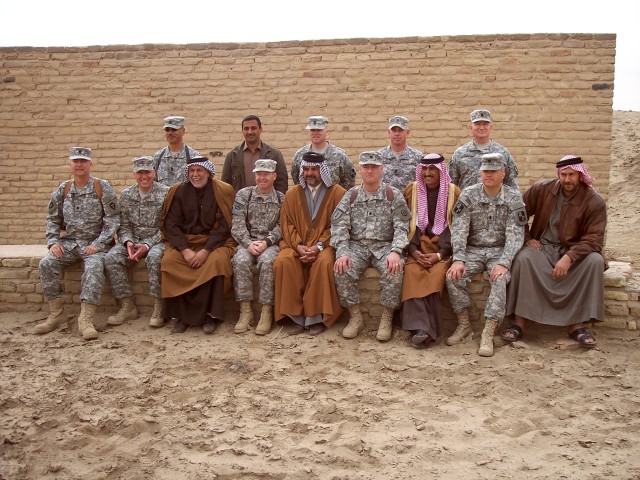
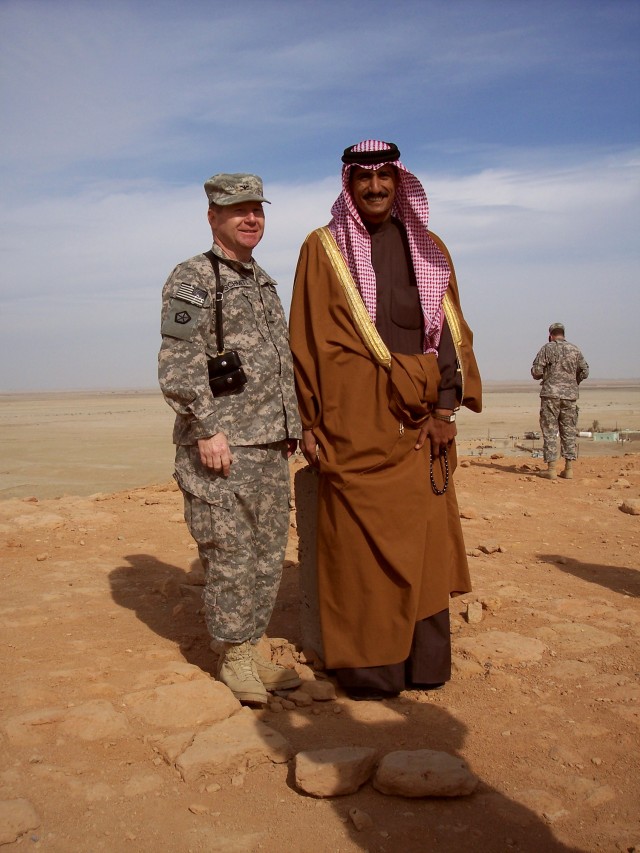
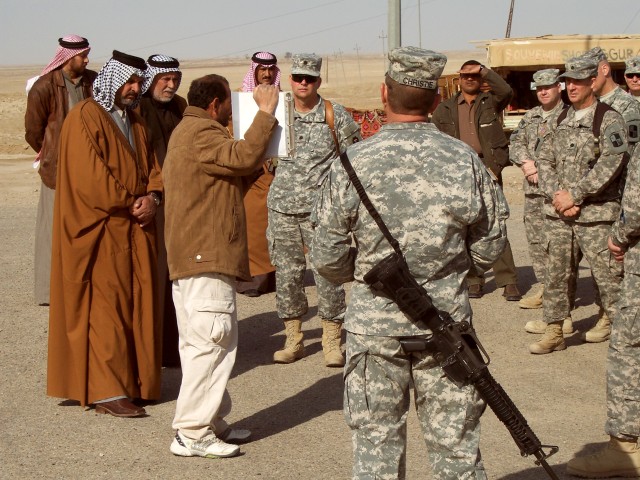
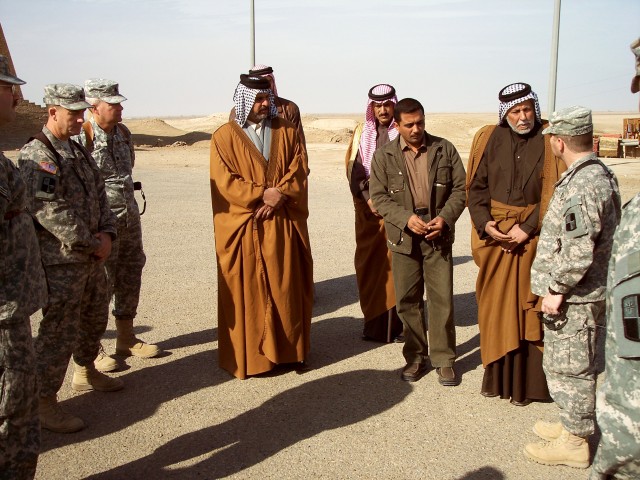
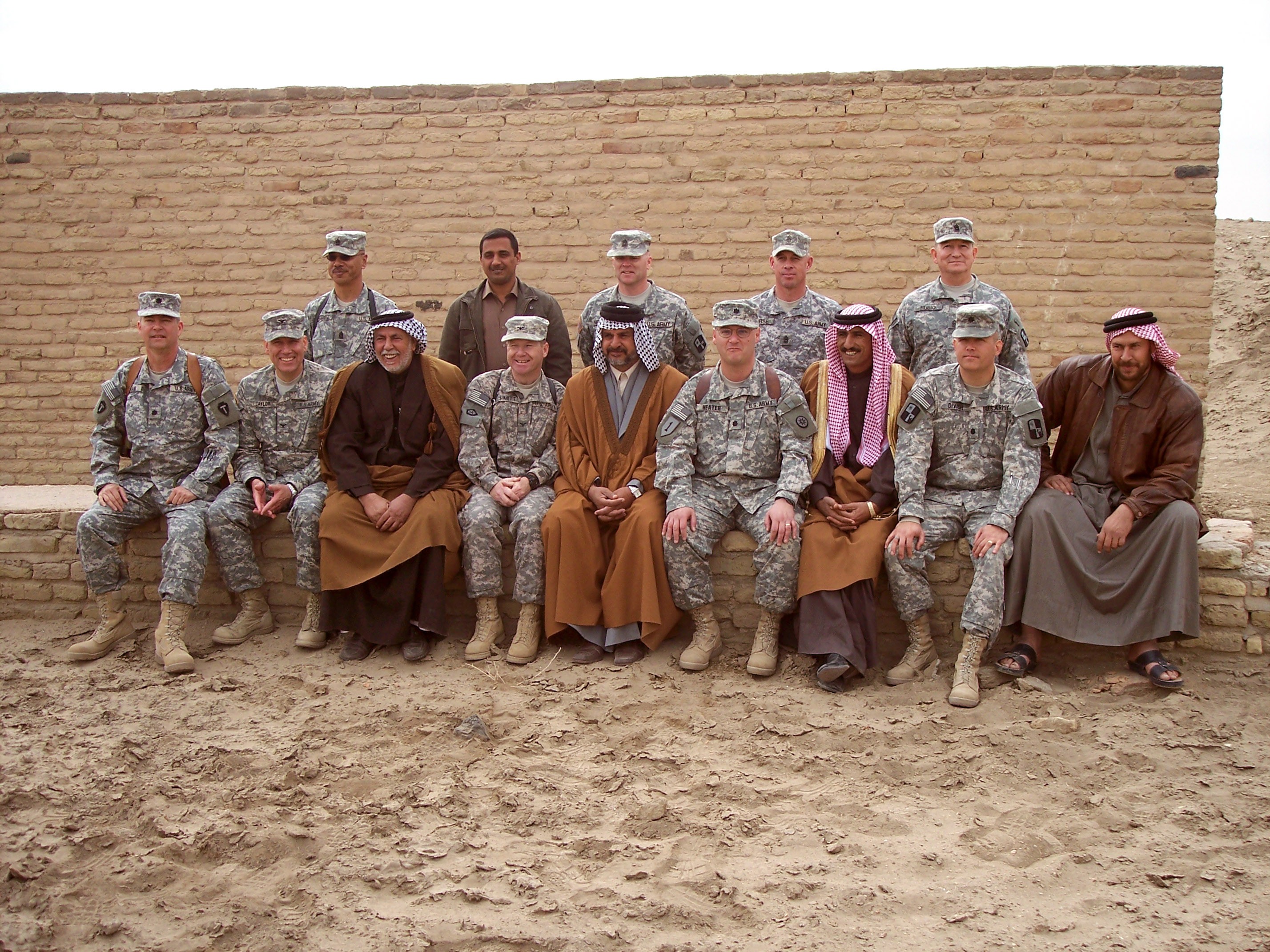
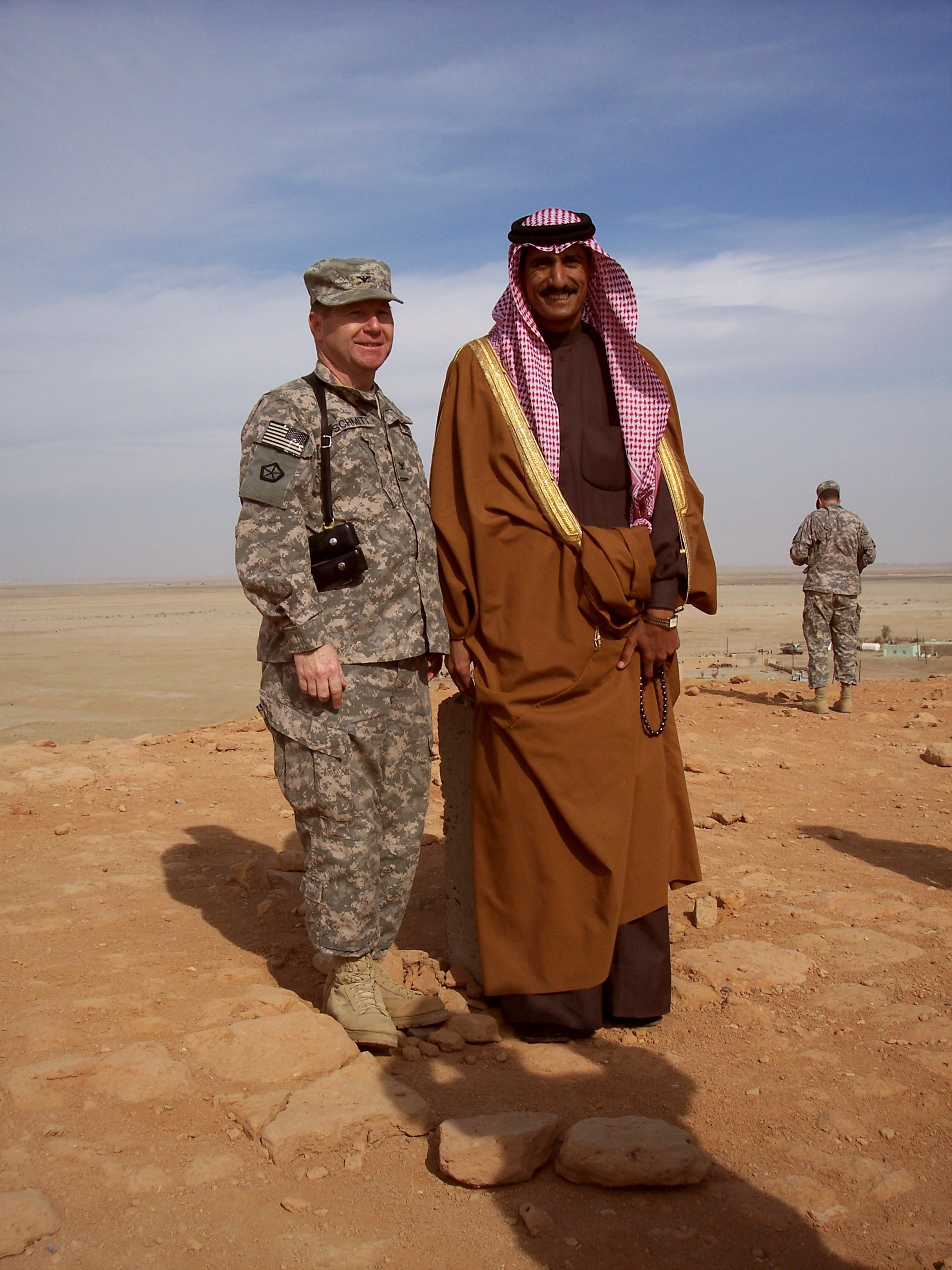
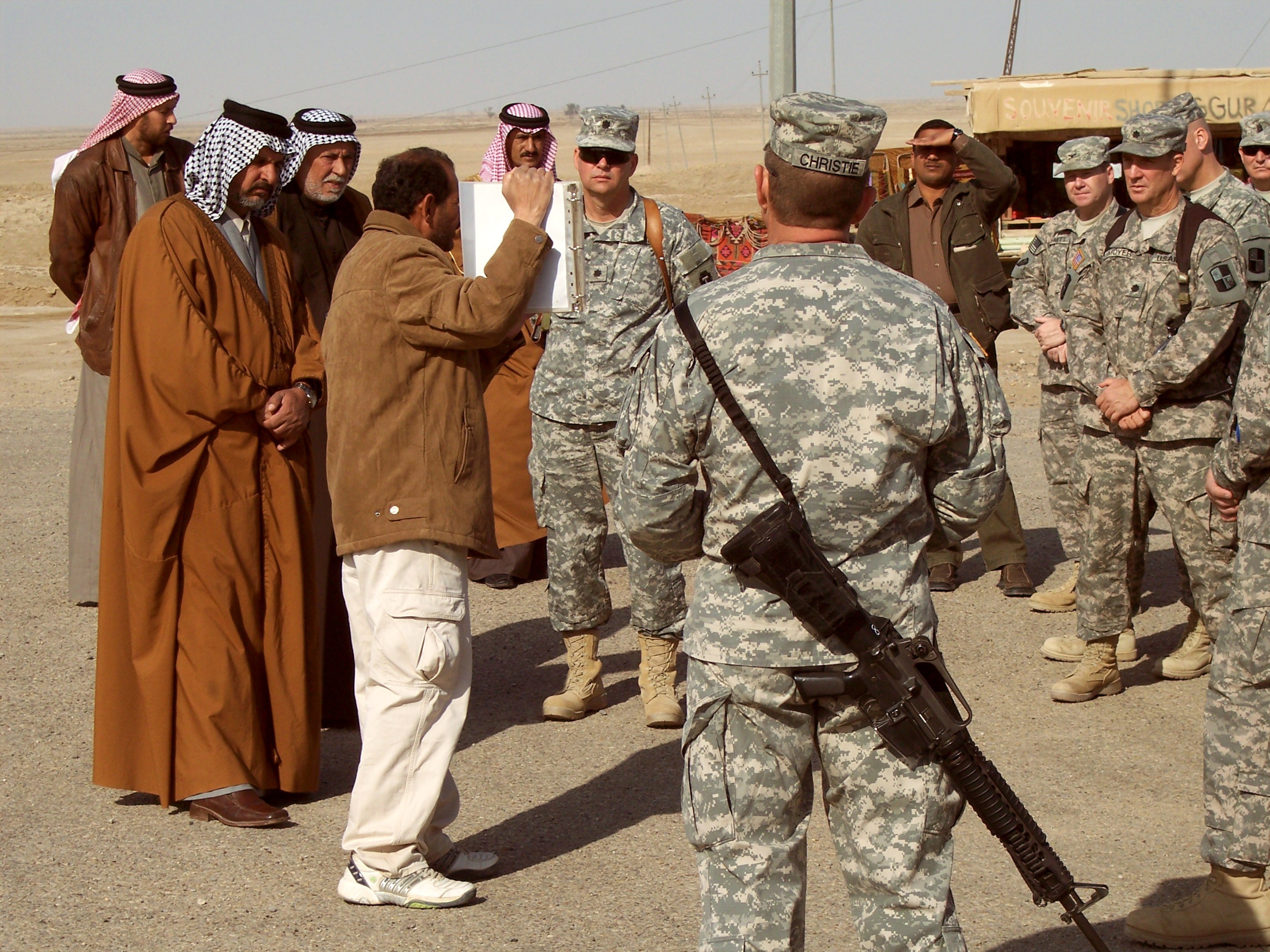
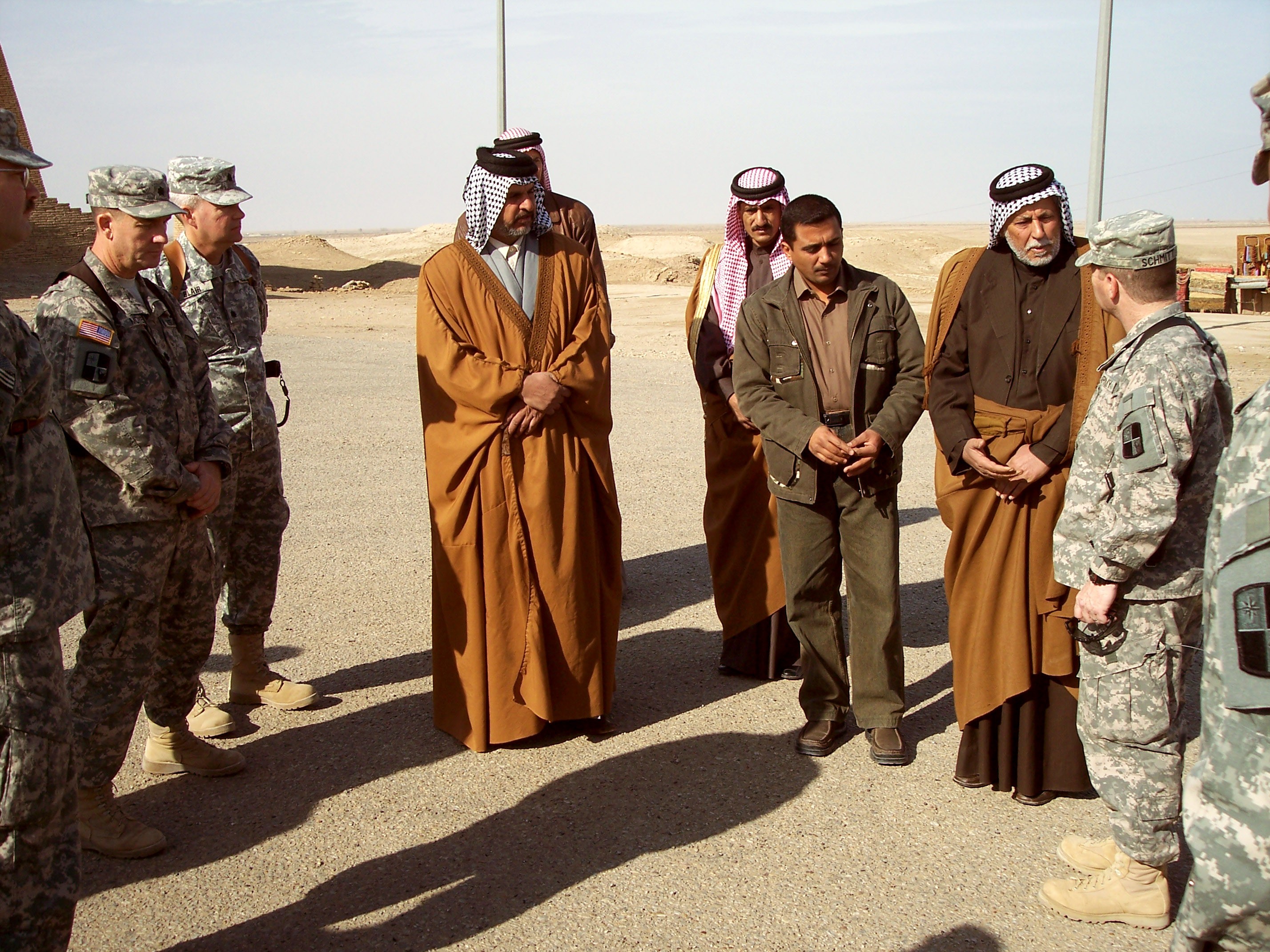
Social Sharing